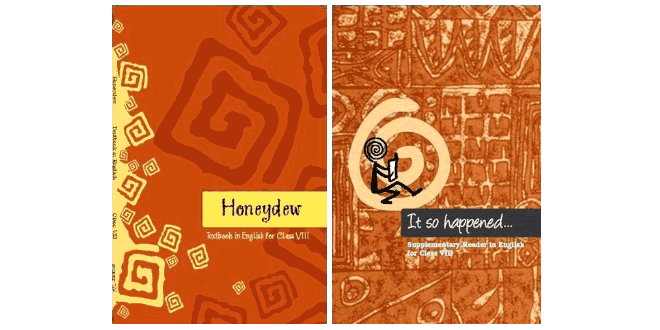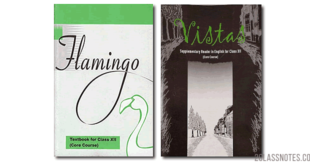The Great Stone Face – II 8th Class NCERT CBSE English Honeydew Chapter 10
Question: Write ‘True’ or ‘False’ against each of the following statements.
- Ernest’s words reminded people of the wise old sayings. ___________
- Total strangers from far away, who visited Ernest in the valley, found his face familiar. _____________
- The Great Stone Face confirmed Ernest’s view that the poet could be worthy of its likeness. ______________
- When Ernest and the poet met, they respected and admired each other equally. ______
- The poet along with Ernest addressed the inhabitants of the valley. ____________
- The poet realized that Ernest’s thoughts were far nobler than his own verses. ________
Answer:
- True
- True
- False
The Face did not answer. - True
- False
Only Ernest addressed the inhabitants of the valley. - True
The Great Stone Face – II – Question: How was Ernest different from others in the valley?
Answer: The wise thoughts of Ernest made him different from others in the valley. Ernest was well-known in his valley and had become famous even beyond the valley. College professors and even the active men of cities came from far to see and converse with him. He received them with gentle sincerity and spoke freely with them of whatever came uppermost or lay deepest in his heart or their own.
Question: Why did Ernest think the poet was like the Stone Face?
Answer: When Ernest read his poems, he hoped that the poet was like the Stone Face. The poet had celebrated the Great Stone Face in his poems. Ernest believed that the poet’s thoughts were worthy of him bearing resemblance to the Stone Face.
Question: What did the poet himself say about his thoughts and poems?
Answer: The poet said that Ernest could hear the distant voice of a heavenly song in his thoughts and poems. However, the poet felt that his own life had not corresponded with his thoughts. He had grand dreams, but they had been only dreams. Sometimes he even lacked faith in his own thoughts.
The Great Stone Face – II – Question: What made the poet proclaim Ernest was the Stone Face?
Answer: When Ernest was addressing the inhabitants of the valley, the poet realized that the life and character of Ernest were nobler than his works of poetry. At a distance high up in the golden light of the setting sun, the Great Stone Face appeared with white mists around it, similar to the white hairs around the brow of Ernest. At that moment, Ernest’s face took on an expression so grand that the poet proclaimed that Ernest was the Stone Face.
Question: Write ‘Ernest’ or ‘Poet’, against each statement below.
- There was a gap between his life and his words.
- His words had the power of truth as they agreed with his thoughts.
- His words were as soothing as a heavenly song but only as useful as a vague dream.
- His thoughts were worthy.
- Whatever he said was truth itself.
- His poems were noble.
- His life was nobler than all the poems.
- He lacked faith in his own thoughts.
- His thoughts had power as they agreed with the life he lived.
- Greatness lies in truth. Truth is best expressed in one’s actions. He was truthful, therefore he was great.
Answer:
- Poet
- Ernest
- Poet
- Ernest
- Ernest
- Poet
- Ernest
- Poet
- Ernest
- Ernest
The Great Stone Face – II – Question:
- Who, by common consent, turned out to be like the Great Stone Face?
- Did Ernest believe that the old prophecy had come true? What did he say about it?
Answer:
- By common consent, Ernest turned out to be like the Great Stone Face.
- No, Ernest did not believe that the old prophecy had come true. Even though everybody had agreed that he was the likeness of the Great Stone Face, he himself hoped that some wiser and better man than himself would appear, bearing a resemblance to the Great Stone Face.
Question: Mark the meaning that best fits the word or a phrase in the story.
(b) weakening
(c) setting
(b) lending (it) a special glow
(c) causing (it) to appear hopeful
(b) big and wide
(c) special and important
(b) prediction
(c) rumor
(b) surprising
(c) shocking
(b) declare
(c) shout
(b) stop
(c) remain
(b) safety
(c) hospitality
(b) stared at
(c) thought of
(b) resembled
(c) assumed
Answer:
- (sun) going down − (c) setting
- brightening − (b) lending (it) a special glow
- spacious − (b) big and wide
- prophecy − (b) prediction
- marvelous − (a) wonderful
- proclaim − (b) declare
- cease − (b) stop
- (a night’s) shelter − (a) stay
- gazed − (b) stared at
- took on (an expression) − (c) assumed
Question: Which form of the verb is more natural in these sentences?
- I’m not free this evening. I will work / am working on a project.
- Have you decided where you will go for your higher secondary?
Yes, I have. I will go / am going to the Kendriya Vidyalaya. - Don’t worry about the dog. It won’t hurt / isn’t hurting you.
- The weatherman has predicted that it will snow / is snowing in Ranikhet tonight.
- Swapna can’t go out this evening. Her father will come / is coming to see her
Answer:
- I’m not free this evening. I am working on a project.
- Have you decided where you will go for your higher secondary?
Yes, I have. I will go to the Kendriya Vidyalaya. - Don’t worry about the dog. It won’t hurt you.
- The weatherman has predicted that it will snow in Ranikhet tonight.
- Swapna can’t go out this evening. Her father is coming to see her.
Question: Complete these pieces of conversation using will or going to with the verbs given.
- Rani: Why are you turning on the radio?
Ravi: I ___________ (listen) to the news. - Rani: Oh, I can’t buy this book. I have no money.
Ravi: Don’t worry. I ___________ (lend) you some. - Rani: Look at those dark clouds.
Ravi: I think it ___________ (rain). - Rani: What shall we have for dinner?
Ravi: I can’t decide.
Rani: Make up your mind.
Ravi: All right, then. We ___________ (have) fried rice and dry beans. - Rani: Why are you filling the kettle with water?
Ravi: I ___________ (make) coffee. - Rani: We need some bread and butter for breakfast.
Ravi: All right. I ___________ (go) to the bakery and get some.
(Before he goes out, Ravi talks to their father.)
Ravi: I ___________ (get) some bread and butter. Do you want any thing from the bakery?
Father: Yes, I want some salt biscuits.
Ravi: Fine, I ___________ (get) you a packet.
Answer:
- Rani: Why are you turning on the radio?
Ravi: I am going to listen to the news. - Rani: Oh, I can’t buy this book. I have no money.
Ravi: Don’t worry. I will lend you some. - Rani: Look at those dark clouds.
Ravi: I think it is going to rain. - Rani: What shall we have for dinner?
Ravi: I can’t decide.
Rani: Make up your mind.
Ravi: All right, then. We will have fried rice and dry beans. - Rani: Why are you filling the kettle with water?
Ravi: I am going to make coffee. - Rani: We need some bread and butter for breakfast.
Ravi: All right. I will go to the bakery and get some.
(Before he goes out, Ravi talks to their father.)
Ravi: I am going to get some bread and butter. Do you want any thing from the bakery?
Father: Yes, I want some salt biscuits.
Ravi: Fine, I will get you a packet.
Question: What changes come to be seen in Ernest with passing of time?
Answer: Ernest was now a man of middle age. His hairs turned white and there were wrinkles across his forehead and furrows in his cheeks. He had become wiser with profound thoughts. The valley people respected him and took his advice on several occasions.
Question: Why did Ernest become sad after he examined the poet’s features?
Answer: The poet had celebrated the Great Stone Face in one of his poems. When Ernest read that poem he became convinced that the poet had the likeness of the Great Stone Face. But when he met the poet, all his hopes shattered. He found no resemblance between the poet and the Stone Face. This was the reason why he became sad.
The Great Stone Face – II – Question: Why did the poet’s eyes fill with tears?
Answer: The poet became sentimental to listen to Ernest. His words had power because they had depth. They were the words of life, a life of good deeds and selfless love. The poet felt that the life and character of Ernest were nobler strain of poetry that he had ever written. His eyes filled with tears and he said to himself that never was there so worthy a sage as that thoughtful face, with the glim of white hair diffused about it.
The Great Stone Face – II – Question: Give a character-sketch of Ernest.
Answer: Ernest was a small boy when he became interested in the Great Stone Face. He felt that the face smiled on him. He wished to love the man with such a face. He was dutiful and helpful to his Mother. He grew up to be a gentle and quiet youth. He regarded the Stone Face as his teacher. He turned to the face for advice. He was not influenced by the common belief that Gathergold or Blood- and-Thunder General had any resemblance with the Stone Face. Even the poet’s face made him sad. And he was right when the poet himself admitted that he wasn’t worthy to be the likeness of the face. Finally, the same poet shouted with joy that Ernest himself was the likeness of the Stone Face. But Ernest remained humble to the last. He kept hoping that some wiser and better man than himself would appear.
Question: How did Ernest feel when people hailed him as the likeness of the Stone face?
Answer: Ernest was truly noble and humble. His deeds matched with his thoughts. He received the poet warmly. For a while he thought the writer of those poems was truly the greatest and wisest person. The poet and the people ultimately hailed him as the man with the likeness of the Stone Face. But Ernest did not agree with them. He kept hoping that a wiser and better man than himself would appear to make the prophecy true.
Question: Describe in brief Ernest’s reaction on three occasions when Gathergold, General Blood-and-Thunder and the poet came to the valley.
Answer: The inhabitants of the valley believed the story that one day a man bearing resemblance to the Stone Face would come there. The first one to arrive was a rich merchant Gathergold. The people were greatly excited. But Ernest noticed no resemblance between Gathergold’s face and that of the Stone Face. Likewise he did not agree with the people who welcomed General Blood-and-Thunder as the greatest man. But Ernest almost believed that the poet was the person he had been waiting for. But again he was disappointed. In fact, Ernest himself was accepted as the Prophet.
 Class Notes NCERT Solutions for CBSE Students
Class Notes NCERT Solutions for CBSE Students


